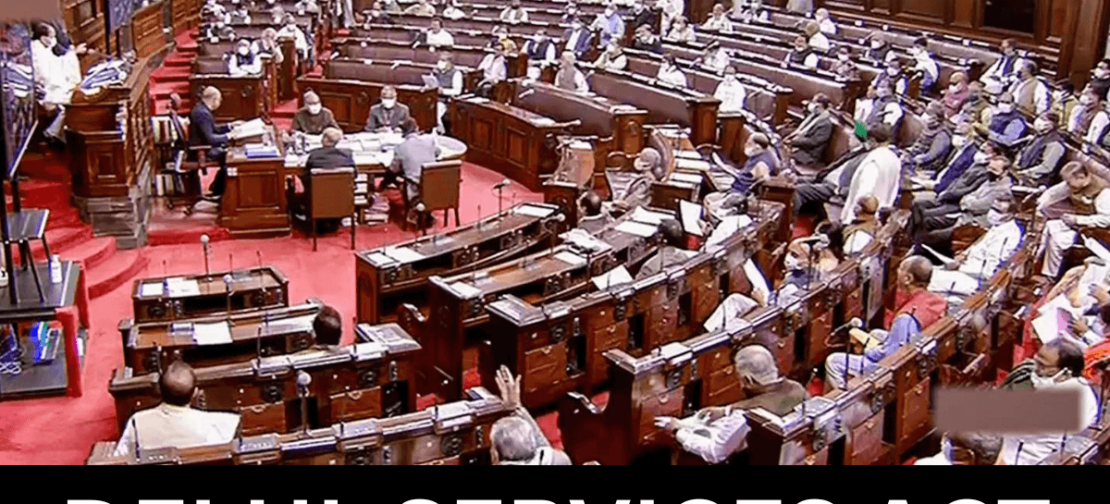Introduction
The GNCTD (Amendment) Bill of 2023 was introduced in the Lok Sabha on August 1st, 2023. Subsequently, it successfully cleared the Lok Sabha on August 3rd, 2023. The final step in its legislative journey was its passage in the Rajya Sabha on August 7th, 2023. During this process, the Bill garnered the affirmative votes of 131 members, while 102 members voted in opposition.
Background
The States Reorganization Act was enacted in 1956, resulting in the classification of Delhi as a Union Territory. Subsequently, the 69th Constitutional Amendment (Article 239AA) was introduced, transforming Delhi into a Union Territory with its own legislative assembly. Following this, the Government of National Capital Territory of Delhi (GNCTD) Act of 1991 was enacted.
In 1992, the 70th Constitutional Amendment was passed, stipulating that certain parliamentary laws should not be considered amendments to the Constitution.
Following judgments by the Delhi High Court and the Supreme Court, the Union government revised the GNCTD Act of 1991. This revision expanded the scope of matters where the Lieutenant Governor’s opinion became mandatory and specified the types of bills that the Lieutenant Governor could refer to the President for consideration.
The Supreme Court’s ruling established that the Delhi government held authority over services within the region. Subsequently, the central government issued an Ordinance to amend the GNCTD Act of 1991, excluding “services” from the jurisdiction of the Delhi legislative assembly. In line with this, the GNCTD (Amendment) Bill of 2023 was introduced in the Lok Sabha on August 1, 2023, aiming to replace the Ordinance.
Main Features
The introduced Bill institutes the National Capital Civil Services Authority, responsible for providing recommendations to the Lieutenant Governor (LG) concerning matters such as official transfers, postings, and disciplinary issues.
Moreover, the Bill bestows the LG with the exclusive authority to exercise discretion in various realms. This encompasses pivotal aspects such as the convening, adjournment, and conclusion of sessions of the Delhi Legislative Assembly.
Additionally, the Bill grants departmental secretaries the ability to apprise the LG, the Chief Minister, and the Chief Secretary of any concerns that possess the potential to ensnare the Delhi Government in disputes with the Central Government.
Critical Inputs
Granting the Authority power over officer transfers and postings could potentially disrupt the interconnected accountability between civil services, ministers, the legislature, and the public. This could potentially infringe upon the fundamental principle of parliamentary democracy, which forms an integral component of the foundational structure doctrine.
By endowing the LG with exclusive discretion across various domains, including the timing of Legislative Assembly sessions, it might lead to situations where the Chief Minister’s ability to convene vital sessions essential for governmental operations could be curtailed.
The provision allowing department secretaries to directly approach the LG, Chief Minister, and Chief Secretary, without involving the relevant minister, could undermine the principle of collective responsibility within the Cabinet. This dynamic restricts the concerned ministers from providing their valuable insights.
| The GNCTD (Amendment) Ordinance, 2023 |
Changes in the 2023 Bill |
| Delhi’s legislative authority over services removed. |
Mention of the said point is absent. |
| Power to appoint authorities, boards, commissions, statutory bodies, or office bearers vested with the President under any law. |
Power to appoint authorities, boards, commissions, statutory bodies, or office bearers to be exercised by: (i) the President for any law passed by Parliament, and (ii) the LG for any law enacted by the Delhi legislature. |
| The Civil Services Authority mandated to present an annual report to the central government and Delhi government, subsequently to be tabled in both Parliament and the Delhi Legislative Assembly. |
This point is not explicitly addressed. |
| Any matter of significant administrative importance deemed necessary by the President, or the Delhi Chief Minister must be submitted to the LG prior to issuing any order. |
Any matter of significant administrative importance perceived as necessary by the Delhi Chief Minister should be submitted to the LG before issuing any order. |

